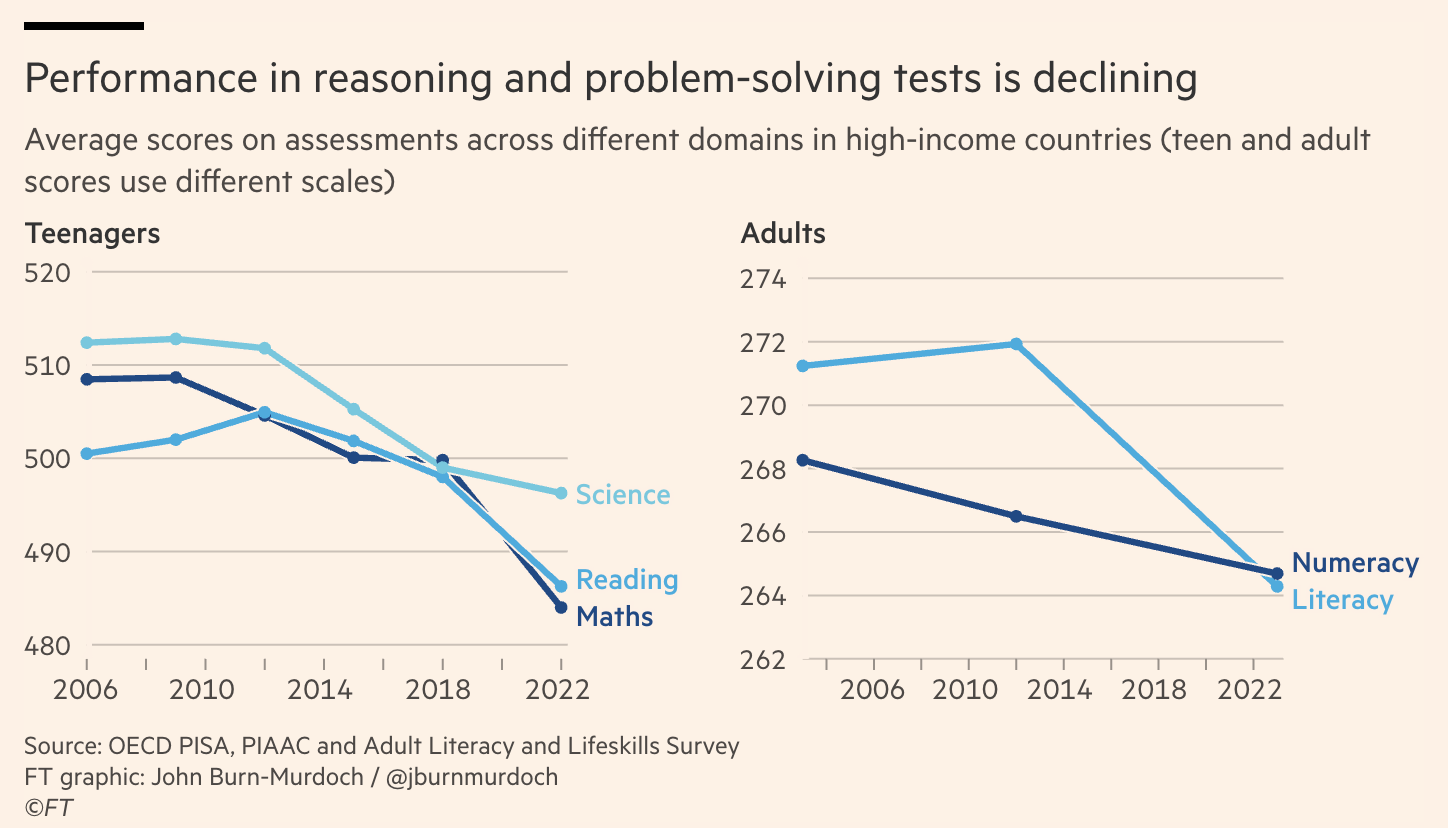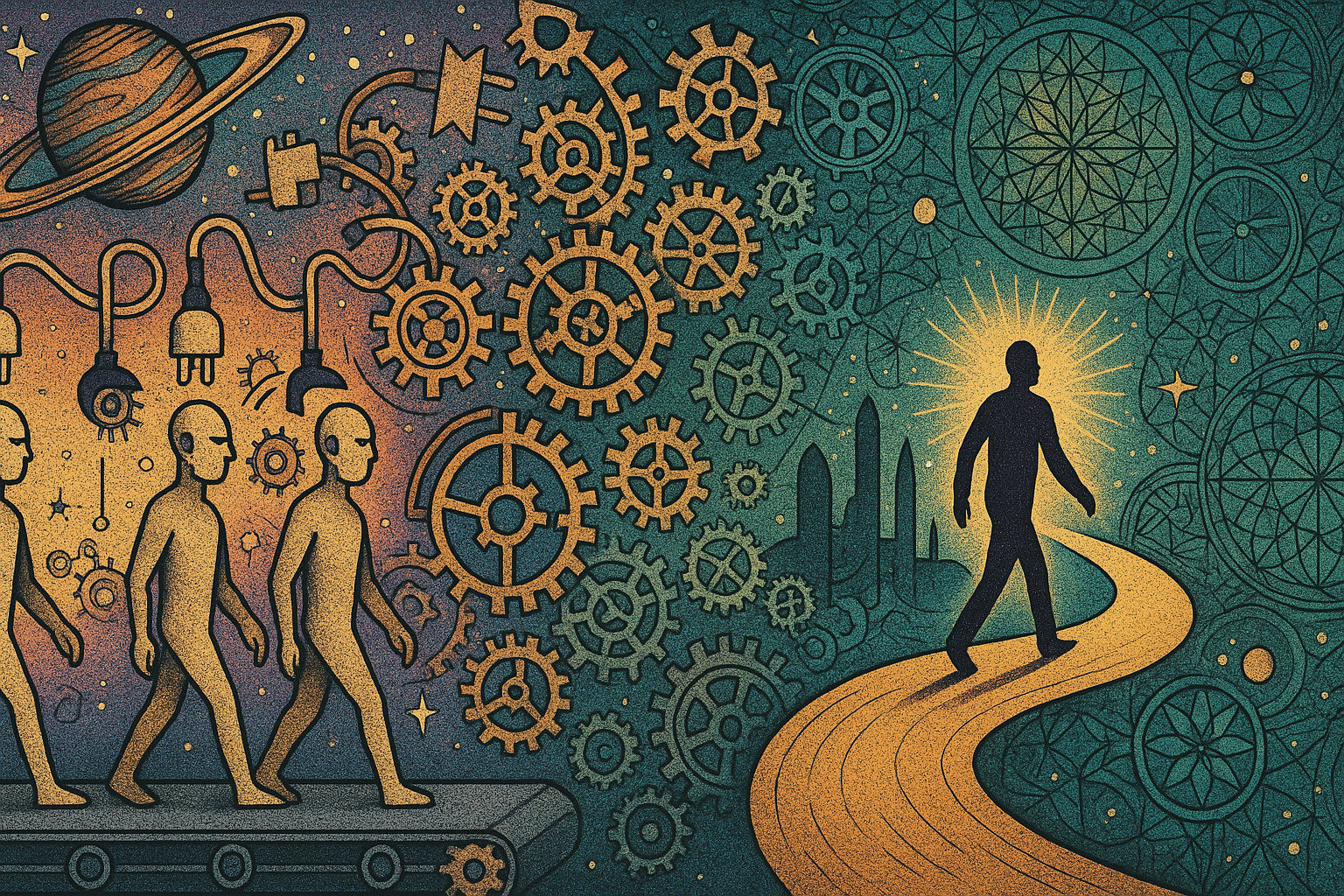An era of existentialism
What happens when prediction is abundant?
Prediction Machines: The Simple Economics of Artificial Intelligence holds up well. The book was published in 2018, a year before Chatgpt 2, but deep learning was in its renaissance. As a result, many of the specific examples are focused on the work of data science and more traditional ML. The premise of the book is that as algorithms become adept at filling in missing information, providing answers, forecasting outcomes, and suggesting what comes next, i.e. prediction, the value of judgment, the distinctly human skill of establishing, evaluating, and prioritising goals, soars.
Prediction is the process of filling in missing information. Judgment is the process of determining the reward to a particular action in a particular environment. It is about working out the objective you’re actually pursuing. Judgment involves determining what we call the “reward function,” the relative rewards and penalties associated with taking particular actions that produce particular outcomes.
While prediction is a key component of any decision, it is not the only component. The other elements of a decision—judgment, data, and action—remain, for now, firmly in the realm of humans. They are complements to prediction, meaning they increase in value as prediction becomes cheap.
LLMs create abundant conviction
We’re no longer just offered predictions, we’re handed answers, delivered with confidence. In the first Google era, “machine intelligence” meant a list of links: guesses you still had to verify. The burden was on you to cross-check, compare, and build your own view. You’d click through a handful of sites, weigh the evidence, and gradually learn who to trust. We joked about those who believed everything they read. Even the New York Times became flooded with nonsense opinion pieces presented as news. Caution was a badge. “Don’t trust everything you read online” was wisdom born from seeing others fooled by authority or plausibility. Skepticism was essential, and thinking for yourself was how you made sense of the web’s noise. The onus was on you.
We risk outsourcing not just our research but our conviction. Why interrogate the material when the answer comes, elegantly worded and free of hesitation? Why weigh competing truths when the sum of all human knowledge, tidied by pattern-matching algorithms, is distilled into a single, confident response?
There’s a glib meme making the rounds: “When answers are abundant, questions become precious.” But this is tired rhetoric. LLMs don’t just lower the price of answers, they manufacture a surplus of certainty. We are being sold ready-made, neatly packaged conviction. The challenge isn’t information overload—it’s the seductive ease of never second-guessing.
LLMs provide conviction. LLMs intensify passivity and belief without verification. We begin to “amuse ourselves to death”. We limit our ability to think.
We will be undone not by overt oppression but by our appetite for distraction. - Neil Postman

The reach of this conviction doesn’t stop there. We allow more of more of our life to be put on autopliot. We put everything in the hands of “the mangerial class” (Burnham). But even these managers defer judgement to the machine (tariff policy anyone?). We have cheap conviction without accountability.
Conviction arbitrage
Where does the value go? What increases in value in a world of abundant conviction?
We will see a reignited energy in the theory of existentialism. Existentialism is fundamentally optimistic: it insists we find meaning precisely because none is preordained. “You can just do things” will meme into existence a renaissance in existentialism. The things we do, our embodied practices give us meaning.
Agency is now in the zietgeist. The belief that you can act, paired with the will to follow through. Agency requires a level of intentionality. This sense of objective provides you with direction, turning speed into velocity.
Velocity measures displacement. It’s direction-aware. The important distinction is that velocity has both speed and direction. Velocity moves you toward a goal. Speed does not.
Patient rigor and taste are now core skills.
that intangible “better” is luxury’s hallmark. We see it in modern software, too.
Prediction became cheap, now conviction is abundant, there becomes a premium on choosing. Patient rigour is a choice. Agency is a choice. To reject the model’s certainty is a choice.
This will not be true for everyone. Abundant convication will become a liability. People will choose to let the world carry them, rather than navigate it.
Camus imagined Sisyphus smiling because the struggle itself filled his heart. We may never push code up a hill of rocks, but in a world where every hill can be flattened by autocomplete, the meaningful act is deciding which summit is worth the climb. The rest is just tokens. - O3
